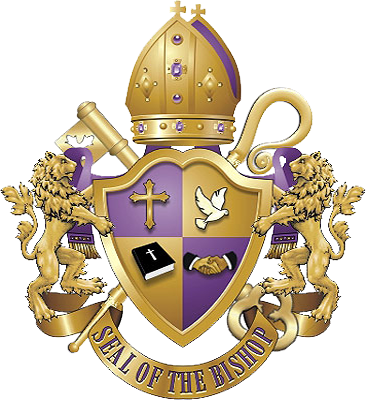The First Bishops of the New Testament
Church: Their Lives and Contributions
Lesson 4.1: Who Was Tertullian of Carthage?
Tertullian of Carthage stands out as one of Christianity’s earliest and most influential
writers. To understand his significance, we must first consider his background. Tertullian
was born around 155 AD in Carthage, a prominent city in Roman North Africa. His
upbringing likely exposed him to various religious, philosophical, and cultural
influences, as Carthage was a thriving center of Roman and Punic traditions. Tertullian
was educated in rhetoric and law, disciplines that equipped him with the skills to
articulate and defend ideas with precision and force. His ability to craft persuasive
arguments would later become one of his defining traits as a Christian writer.
Though Tertullian’s conversion to Christianity is not precisely dated, it is clear that it
marked a significant turning point in his life. Before becoming a Christian, he may have
been involved in Roman pagan practices, which were common in his cultural
environment. However, his eventual embrace of Christianity was profound, leading him
to dedicate his intellectual talents to the service of the Church. Tertullian’s writings
reveal his deep conviction and passion for defending Christian beliefs in a world often
hostile to them. His commitment to the faith extended beyond intellectual endeavors,
shaping his vision for how Christians should live and worship.
Tertullian’s role in the Church was not as a bishop, but rather as a lay theologian and
apologist. Unlike the bishops we’ve studied earlier in this course, such as Clement of
Rome and Ignatius of Antioch, Tertullian did not hold an official ecclesiastical office. Yet
his contribution to the Church was no less significant. His writings addressed
theological, moral, and practical issues faced by Christians during a time of persecution
and doctrinal uncertainty. Tertullian’s ability to blend rigorous intellectual analysis with
passionate advocacy earned him recognition as one of the fathers of Latin Christianity.
He was the first Christian writer known to use Latin extensively, which helped establish
the language as a medium for theological discourse in the Western Church.
One of Tertullian’s most notable contributions was his defense of Christian doctrines
against pagan critiques and heretical distortions. His apologetic works, such as
"Apologeticus," sought to refute accusations against Christians, including charges of
immorality and treason. In this text, Tertullian argued that Christians were loyal citizens
who contributed positively to society, despite their refusal to worship Roman gods. His
defense of religious freedom was groundbreaking, as he asserted that individuals
should not be coerced into worship but should be free to follow their conscience.
Tertullian also addressed theological controversies, particularly those surrounding the
nature of God and the Trinity. He is credited with coining the term "Trinitas," or "Trinity,"
to describe the relationship between the Father, Son, and Holy Spirit. While earlier
Christian leaders had spoken of God in triadic terms, Tertullian’s articulation of the
Trinity was more systematic. He used precise language to explain how God is one in
essence but three in person, laying the groundwork for later theological developments.
His work on the Trinity influenced subsequent Church fathers, including Augustine, and
remains a cornerstone of Christian theology.
In addition to defending doctrine, Tertullian addressed the moral and ethical challenges
faced by Christians. He was deeply concerned with the integrity of Christian conduct,
urging believers to live lives worthy of their faith. His writings often emphasized the
importance of purity, discipline, and devotion. For instance, in works like "De
Spectaculis," Tertullian condemned participation in pagan entertainment, arguing that
Christians should avoid activities that compromised their spiritual values. He also
advocated for modesty, humility, and fidelity, seeing these virtues as essential to the
Christian life.
Despite his significant contributions, Tertullian’s legacy is complex. Later in life, he
joined the Montanist movement, a sect that emphasized prophetic revelations and strict
moral discipline. Montanism was considered heretical by the mainstream Church, and
Tertullian’s association with it led to his marginalization. However, even during this
period, he continued to produce writings that enriched Christian thought. His critiques
of Church practices and leadership during his Montanist phase reveal his unwavering
commitment to what he saw as authentic Christianity.
Tertullian’s influence extended far beyond his lifetime. His writings shaped the
theological and cultural identity of the Western Church, particularly through their use of
Latin. He also set a precedent for the role of Christian intellectuals in engaging with
broader society. By addressing philosophical, legal, and ethical issues, Tertullian
demonstrated that faith and reason could coexist and that Christianity offered
compelling answers to life’s most profound questions.
In conclusion, Tertullian of Carthage was a pivotal figure in early Christian history. His
background, intellectual abilities, and unwavering commitment to his faith enabled him
to address the challenges faced by the early Church with clarity and conviction. From
his defense of Christian doctrines to his articulation of the Trinity, Tertullian’s
contributions shaped the foundations of Christian theology and practice. Though his
association with Montanism complicated his legacy, his writings remain a valuable
resource for understanding the development of early Christianity. As we move forward
in this course, we will explore how Tertullian’s theological insights influenced later
Christian thought and paved the way for future leaders like Irenaeus of Lyons

Comments are closed.